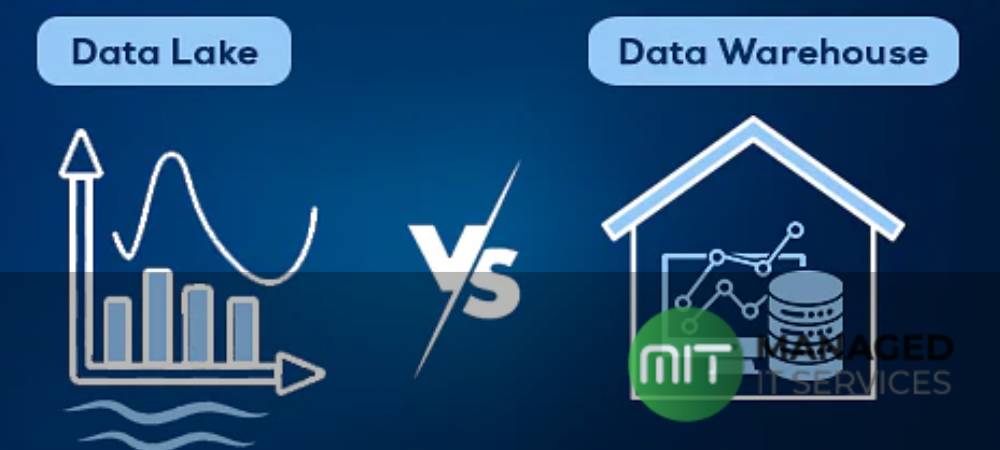Are you aware of the differences between data lake and data warehouse terms? If you are not, you are not alone in this because most people think these are interchangeable terms. However, these two words refer to two very different ideas. Big data is frequently stored in data lakes and warehouses, but that is about where their similarities end.
When combined, data lakes and data warehouses are two distinct methods for storing, processing, and analyzing data, strengthening data management practices. The distinction is crucial because they have different functions and must be properly optimized by various viewpoints.
To thoroughly understand these terms, let’s learn what they mean and how they differ from each other.
Understanding the Concept of Data Lakes
A Data Lake is a large storage vault that can hold structured, semi-structured, and unstructured data. It is a place to store any data in its native format, with no fixed account or file size limits. It can provide a large amount of data for improved analytical performance and native integration.
Understanding the Concept of Data Warehouse
The data warehouse is a combination of technologies and elements. It gathers and manages data from numerous sources to offer insightful business information. It is the large-scale electronic data storage intended for analysis and query rather than transaction processing. It involves the conversion of data into information.
What Makes them Unrelated to Each Other?
- Data Structure
The varying structure of raw vs processed data is the main distinction between data lakes and data warehouses. Data warehouses store processed and refined data, whereas data lakes primarily store raw, unprocessed data.
Data lakes, therefore, typically need much more storage space than data warehouses. Additionally, unprocessed, raw data is flexible and suitable for machine learning. It can be quickly analyzed for any purpose. While data warehouses, which only keep processed data, save money by not keeping data that might never be used.
- Objectives
Data warehouses primarily support the operational and analytical needs of the business. The data warehouse, which serves as a hub to enable seamless communication between these systems, is tightly coupled with the dynamic business systems. The use of Data Warehouses as a single source of truth, on the other hand, allows for the discovery of business insights.
Data lakes are used to store all kinds of historical data. To accomplish their long-term objectives, businesses can make strategic decisions using the insights gleaned from a sizable dataset in a data lake.
- Consumers
Users who enjoy deep analysis should use data lakes. These users include data scientists who require sophisticated analytical tools with features like statistical analysis and predictive modelling.
Due to its excellent organization and simplicity of use, the data warehouse is perfect for operational users. To make processed data readable by the majority, it is used in charts, spreadsheets, tables, and other formats. Processed data, such as that kept in data warehouses, only needs the user to be knowledgeable about the subject matter.
- Cost
Data lakes are comparatively less expensive than storing data in a data warehouse. Data warehouse storage is more expensive and time-consuming.
- Position of Schema
Data lakes typically establish the schema after the data has been saved. This method provides high agility and simple data capture, but it necessitates work at the end of the process. Before data is stored in a data warehouse, the schema is typically defined. The work is required at the start of the process, but it offers performance, security, and integration.
Conclusion
| CHARACTERISTICS | DATA LAKES | DATA WAREHOUSE |
| Data Structure | Raw | Processed |
| Objective | Analytics | Operational |
| Consumers | Used by Data Scientists | Used by Management Executives for Insights |
| Cost | Low Cost | High cost |
| Position of Schema | Schema-on-read | Schema-on-write |
Businesses require both Data Lake and Data Warehouse because they serve different purposes and are not interchangeable. Depending on your company’s requirements, developing the appropriate data lake or data warehouse will aid growth. If your business requires any help with storing big data, contact us. MITS provides consultancy and is the leading IT services provider in Pakistan. For further information, check out our services page.




